
Jac Holzman is an American record executive. He is the founder of the record labels Elektra Records and Nonesuch Records. Holzman helped commercially launch the CD and home video formats, as well as the pilot program which became MTV. He was inducted into the Rock and Roll Hall of Fame in 2011.

Goodbye and Hello is the second album by Tim Buckley, released in 1967. It was recorded in Los Angeles, California, in June of the same year.

Lorca is the fifth studio album by singer-songwriter Tim Buckley, released in 1970 on Elektra Records. It was named after Spanish poet Federico Garcia Lorca, and was recorded simultaneously with Blue Afternoon (1969), though notably different in style. Its avant-garde approach breaks away from traditional songwriting styles, such as the verse/chorus binary form.

13 is the first compilation album by American rock band the Doors, released by Elektra Records on November 30, 1970. The title refers to the thirteen tracks included, which feature a variety of songs from their five studio albums released up to that point. The cover shrink wrap featured a clear sticker that read: "A Collection of Thirteen Classic Doors Songs". It is the band's only compilation album released while lead singer Jim Morrison was alive.

"Kick Out the Jams" is a song by MC5, released as a single in March 1969 by Elektra Records. The album of the same name caused some controversy due to inflammatory liner notes by the band's manager, John Sinclair, and the track's rallying cry of "Kick out the jams, motherfuckers!". According to guitarist Wayne Kramer, the band recorded this as "Kick out the jams, brothers and sisters!" for the single released for radio play; lead vocalist Rob Tyner claimed this was done without group consensus. The edited version also appeared in some LP copies, which also withdrew Sinclair's excitable comments. The album was released in January 1969; reviews were mixed, but the album was relatively successful, quickly selling over 100,000 copies and peaking at #30 on the Billboard album chart in May 1969 during a 23-week stay.

Who Knows Where the Time Goes is the seventh studio album by American singer and songwriter Judy Collins, released by Elektra Records in 1968. It peaked at No. 29 on the Billboard 200 charts.

Whales & Nightingales is the eighth studio album by American singer and songwriter Judy Collins, released by Elektra Records in 1970. It peaked at No. 17 on the Billboard Pop Albums chart.
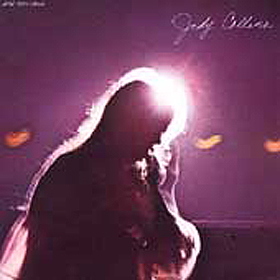
Living is a 1971 live album by American singer and songwriter Judy Collins, released by Elektra Records in 1971. The album is taken from performances on the singer's 1970 concert tour. It peaked at No. 64 on the Billboard 200 charts.
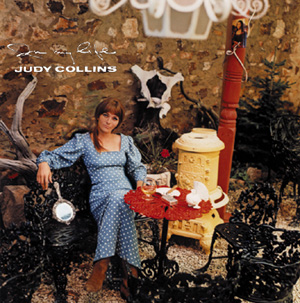
In My Life is the fifth studio album by the American singer and songwriter Judy Collins, released by Elektra Records in 1966. It peaked at No. 46 on the Billboard Pop Albums charts in 1967.

Fifth Album is the fourth studio album by American singer and songwriter Judy Collins, released by Elektra Records in 1965. It peaked at No. 69 on the Billboard Pop Albums chart.
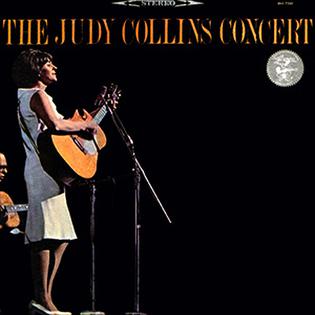
The Judy Collins Concert is a 1964 live album by American singer and songwriter Judy Collins, which included combined traditional folk material with songs by Bob Dylan and Tom Paxton. It was recorded on March 21, 1964 at the Town Hall in New York City.
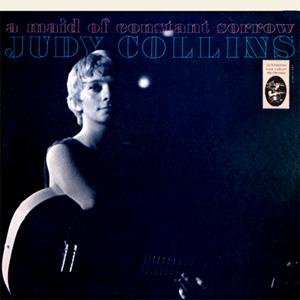
A Maid of Constant Sorrow is the debut album by American singer and songwriter Judy Collins, released in 1961 on Elektra Records and featuring traditional folk songs.

The Original Delaney & Bonnie, also known by its subtitle Accept No Substitute, is the second studio album by American recording duo Delaney & Bonnie. It was recorded with many of the "friends" that would form the core of their best-known 1969–70 touring band, including Bobby Whitlock, Carl Radle and Rita Coolidge.

Judy Collins #3 is the third studio album by the American singer and songwriter Judy Collins. It was issued by Elektra Records in December 1963. It spent 10 weeks on the Billboard Pop album charts in 1964, peaking at No. 126.
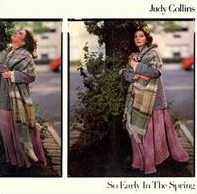
So Early in the Spring... The First 15 Years, is a compilation album by American singer and songwriter Judy Collins, first released as a double LP in 1977. It peaked at No. 42 on the Billboard Pop Albums charts. The LP featured album portraits by renowned photographer Richard Avedon.
Cynthia Gooding was an American folk singer and musicologist who recorded traditional songs from various countries for Elektra Records in the 1950s and 1960s. Judy Collins wrote that she had been inspired by her.

The Paul Butterfield Blues Band was an American blues and blues-rock band from Chicago. Formed in the summer of 1963, the group originally featured eponymous vocalist and harmonicist Paul Butterfield, guitarist Elvin Bishop, bassist Jerome Arnold, and drummer Sam Lay. The band added guitarist Mike Bloomfield and keyboardist Mark Naftalin before recording their self-titled debut album, which was released in October 1965. The founding sextet were inducted into the Rock and Roll Hall of Fame in 2015, along with Billy Davenport, their drummer on their second album, East-West.
William Stanley Harvey was an American graphic designer and art director, responsible for the design of Elektra Records' logos and many of its album covers between the 1950s and 1970s including those by Love, The Doors, MC5, The Stooges, Judy Collins, Tim Buckley and others.

Transformer is the only album by American musician David Stoughton, released in December 1968 by Elektra Records. Produced by Stoughton, the album is a mix of folk and pop songwriting with sound collages and musique concrète. The musician had drawn influence from composer John Cage and created the group The Cambridge Electric Opera Company to explore electronic and traditionally-based music; although the group perform on the album, it was credited to Stoughton alone to avoid confusion with fellow Elektra band Earth Opera.

Recollections is a collection of the best songs by American singer Judy Collins, released in 1969 by Elektra Records. In the same year, the label released a reissue of the album titled Judy with a different cover, but the same tracklist.

















